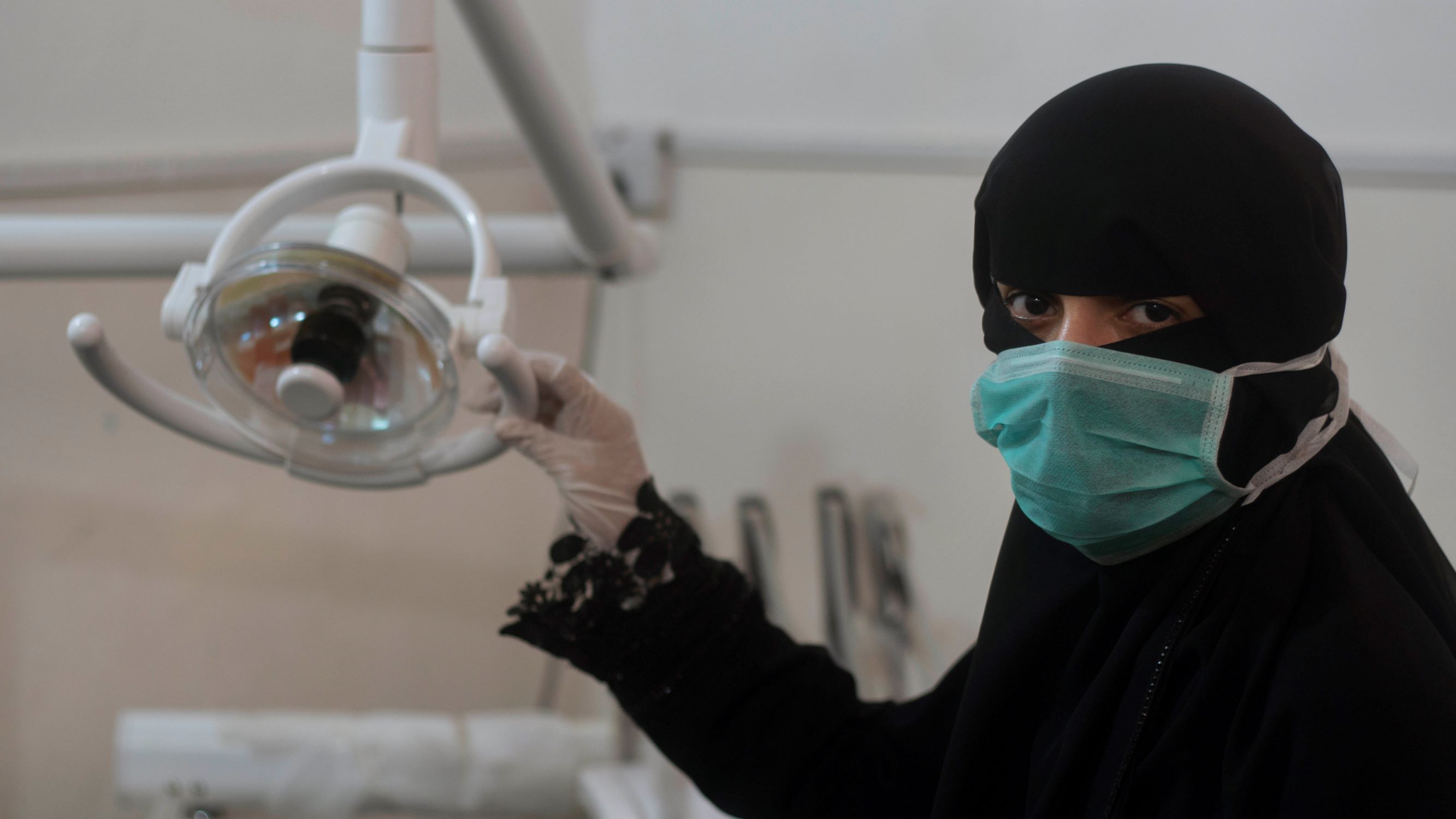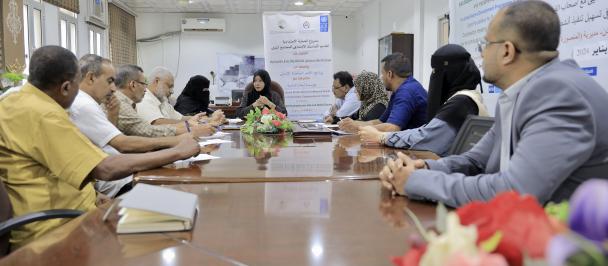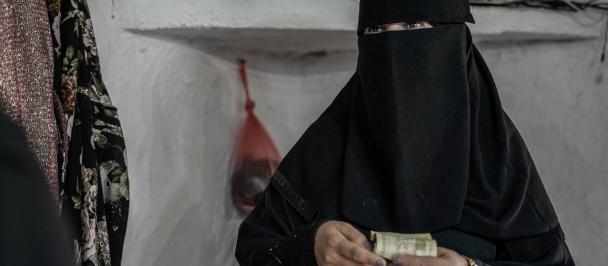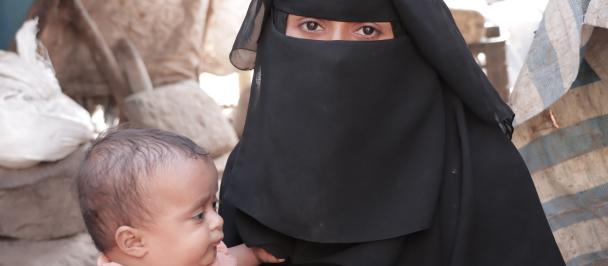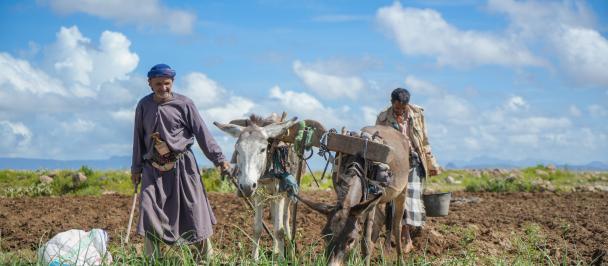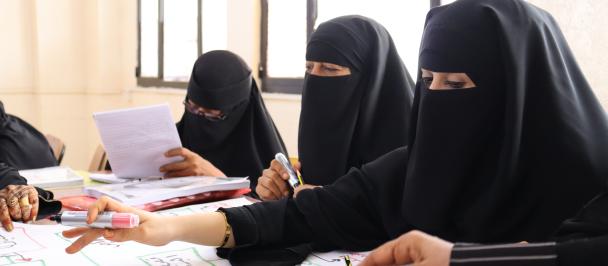How one woman completed a degree and opened the first dental clinic in her community during Yemen’s war
Keeping dreams alive in the face of death
November 27, 2019
“Struggling motivated me to become the first female dentist to open a clinic in Zinjibar, Yemen.”
Twenty-seven-year-old Mariam Saleh’s dream of becoming a dentist may seem ordinary, but her will and determination to advance her education and training throughout Yemen’s civil war were extraordinary.
In 2011, near the end of her first semester of dental school, Mariam returned home to visit her family in their rural hometown. At the same time, armed elements of Al-Qaeda had taken control of a number of cities in the region – forcing her family to flee. Mariam’s family suffered their second wave of displacement in 2015, during her final semester of dental school.
Mariam explained: “I could not finish the semester. My dream of completing my degree and becoming successful was almost lost to the war.”
This story is not unique in a country that has been ravaged by a civil war and ongoing conflict for over 8 years. The pervasive state of economic deterioration; the steady decline in the value of Yemen’s currency and gross domestic product; the ongoing ban on fuel products; and the failure to compensate workers for jobs performed have increased the (already heavy) burden Yemeni people are carrying. Many have been left unable to pay for their housing or to take a family member to the hospital in the event of an emergency, let alone pay for an education.
The deepening crisis has led to a near-collapse of key sectors, especially health care. According to the World Health Organization, only 51% of Yemen’s health facilities are still functioning and providing services, while 19.7 million people are in need of health assistance.
Through hard work, resilience, and determination, Mariam was able to complete her studies and graduate. For the next two years, she had no choice but to work for free at a public hospital in Ja’ar, Abyan. Eventually, she landed a job in a private clinic, opened by another dentist and they shared whatever profits they made.
With the help of the USAID-funded Yemen Emergency Crisis Response Project (YECRP), in partnership with the United Nations Development Programme (UNDP) and the Small and Micro Enterprise Service (SMEPS), Mariam was 1 of 336 women supported to lead businesses of their own in the health sector.
The YECRP’s objective is to create life and work opportunities for the most vulnerable groups (including youth, women, and those who have been forced from their homes), to rebuild communities from the bottom up. In this way, the program helps to make households stronger, better able to cope, and capable of assisting and contributing to their communities.
Mariam is now the owner of the first dental clinic in Zinjibar, Abyan, Yemen.
She describes the programme as giving her a “new life” after she had become desperate and was almost convinced to stay home and give up on her dream of becoming a dentist. Through the funding she received, Mariam purchased essential medical equipment to open her own clinic, including a dental chair, operating equipment, an electrical system with solar panels and batteries, a sterilization apparatus, and a dental filling device.
Within its opening month, Mariam noticed a high turnout of people coming from the city and nearby villages and now plans to expand her practice and business hours:
“My main concern now is serving my people regardless of the profits. My clinic provides the services of tooth extraction, dental fillings, crowning, and teeth cleaning for all the patients based on their needs and circumstances.”
Through the YECRP, nearly 5,390 Yemenis can now access improved private health services.
***
Between September 2016 – March 2019, UNDP partnered with the Social Fund for Development (SFD) and Small and Micro Enterprise Promotion Service (SMEPS) to implement the USAID-funded and supported ($11,200,000 USD) Yemen Emergency Crisis Response Project (YECRP). Thanks to this aid, YECRP created employment opportunities, restored the delivery of key health and education services, and revived the agriculture sector to benefit vulnerable local households and communities amidst Yemen’s ongoing crisis.

 Locations
Locations